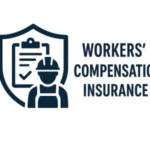In the competitive landscape of Georgia’s staffing industry, understanding the financial implications of workers’ compensation insurance is essential for agency owners and managers. Workers’ compensation not only provides critical protection for employees injured on the job but also represents a meaningful operational expense that can impact a firm’s bottom line. This article delves into the factors influencing workers’ comp costs for staffing agencies in georgia, offering insights to help businesses effectively manage risks while maintaining compliance and financial stability.
Table of Contents
workers Compensation Insurance Factors Affecting Costs for GA Staffing Agencies
Several key elements influence the premiums GA staffing agencies face when securing workers’ compensation insurance. One major factor is industry classification, which is based on the types of jobs your agency places. Positions with higher risks, such as construction or manufacturing roles, naturally command higher rates compared to lower-risk clerical or administrative jobs. Additionally, your agency’s claims history plays a crucial role: a clean record with few or no incidents demonstrates effective risk management, often resulting in reduced costs. Conversely, past claims signal potential future liabilities and can drive premiums upward.
Other considerations that impact pricing include payroll size and employee turnover rates.As premiums are primarily calculated based on total payroll, agencies with larger staffs or higher compensation totals will incur higher costs. However, high turnover can increase expenses indirectly by elevating administrative and training risks, perhaps leading to more claims. The table below outlines some of the typical cost drivers for GA staffing agencies:
| Factor |
impact on Costs |
| Industry Classification |
High-risk jobs increase premiums |
| Claims History |
Fewer claims decrease costs |
| Payroll Size |
Larger payrolls raise premiums |
| Employee Turnover |
High turnover can elevate risk |
Analyzing Risk Profiles and Claim histories to Accurately Estimate Premiums
Effectively estimating workers’ compensation premiums hinges on a detailed understanding of both risk profiles and the historical claims associated with a staffing agency. An in-depth risk assessment evaluates factors such as the nature of job roles,workplace safety procedures,and the physical environment where temporary or permanent staff operate. Agencies placing employees in high-risk industries, such as construction or manufacturing, typically face higher premium rates due to increased exposure to workplace injuries. Conversely, staffing in office or administrative roles often presents lower risk levels. By analyzing these variables, insurers can tailor premium costs that align with the specific risk exposure of the agency, ensuring fair and accurate pricing.
claim histories provide critical insights into an agency’s loss experiance, directly influencing future premium calculations. A comprehensive review looks at the frequency, severity, and types of claims filed within the agency over past policy periods. Agencies with fewer and less severe claims are often rewarded with lower rates, reflecting their proactive risk management and safe work environments. Consider the following factors influencing premium adjustments:
- Claim frequency: the total number of claims filed – more claims typically lead to higher premiums.
- Claim severity: The cost associated with claims, including medical expenses and lost wages.
- Claim causation: Whether claims resulted from preventable incidents or unavoidable risks.
- Safety initiatives: Implementation of risk mitigation and employee training programs.
| Risk Factor |
Impact on Premium |
Example |
| high-risk job placement |
Significant increase |
Temporary employees in warehouse operations |
| Strong safety protocols |
Potential premium reduction |
Regular safety training and audits |
| Frequent small claims |
Moderate increase |
Multiple minor injury reports |
| Clean claim history |
Lower premiums |
No claims filed in the past 3 years |
Strategies for reducing Workers Compensation Expenses Without Compromising Coverage
Controlling workers’ compensation costs while maintaining comprehensive coverage is attainable through proactive risk management and informed policy selection. One effective strategy is to invest in robust safety training tailored specifically for the unique environments of a staffing agency. Prioritizing injury prevention not only reduces claim frequency but also fosters a culture of accountability among both internal staff and placed employees. Additionally, working closely with insurance carriers to conduct thorough payroll reviews ensures accuracy in classification codes and premium calculations, ultimately avoiding unexpected costs.
consider implementing these approaches:
- Regular safety audits: Identify potential hazards and address them promptly.
- Return-to-work programs: Facilitate early reintegration of injured employees to reduce claim duration.
- Leveraging dividend plans: Partner with insurers that offer dividends for low claims experience,rewarding safe practices.
- Customized policy options: Tailor your coverage limits and deductibles to balance protection and premium costs effectively.
Best Practices for Compliance and Cost Management in Georgia Staffing Firms
To effectively manage compliance and costs in Georgia staffing firms, it is indeed essential to implement comprehensive risk mitigation strategies. Prioritizing robust employee training programs and enforcing strict workplace safety policies not only reduces the likelihood of workplace injuries but also positively impacts workers’ compensation premiums. Additionally, maintaining accurate and up-to-date records of employee roles, wage classifications, and job duties ensures proper risk categorization, which can substantially influence insurance rates. Partnering with experienced insurance brokers or agents familiar with Georgia’s regulatory landscape allows staffing agencies to navigate complex compliance requirements and secure competitive workers’ compensation policies tailored to their operational risks.
cost control goes hand-in-hand with compliance through ongoing monitoring and strategic claims management. Agencies should establish a dedicated team to handle worker injury claims promptly and efficiently, helping to limit costly litigation and claims fraud. Leveraging technology solutions such as claims tracking software or integrated safety management platforms provides critical data insights to identify cost drivers and areas for betterment.Below is a summary of best practices currently adopted by leading Georgia staffing firms:
- Proactive Injury Prevention: Regular safety audits and tailored training sessions.
- Accurate Employee Classification: Aligning job descriptions with classification codes.
- Swift Claims Handling: Formal procedures for rapid reporting and resolution.
- Data-Driven Analytics: Utilizing claims data to refine risk management strategies.
- Legal Compliance Checks: Staying updated with Georgia’s labor and insurance laws.
Q&A
Q&A: How Much Does Workers’ Comp Cost a GA Staffing Agency?
Q1: What factors influence the cost of workers’ compensation for a staffing agency in Georgia?
A1: Several factors impact workers’ compensation costs for GA staffing agencies,including the agency’s payroll size,the types of industries served,the classification codes of assigned employees,claims history,and safety programs in place. Higher-risk job placements and prior claims typically increase premiums.
Q2: what is the average range of workers’ compensation premiums for staffing agencies operating in Georgia?
A2: On average, workers’ comp premiums for staffing agencies in Georgia can range from approximately 1% to 6% of total payroll, depending on risk classification. Higher-risk industries such as construction or manufacturing attract higher rates, while lower-risk office placements have comparatively lower costs.
Q3: How is the premium for workers’ compensation calculated for a staffing agency?
A3: Premiums are calculated by multiplying the assigned classification’s rate (per $100 of payroll) by the agency’s total payroll in those classifications. The total premium may then be adjusted based on experience modification factors reflecting the agency’s claims history and any applicable discounts or surcharges.
Q4: Are there any strategies a Georgia staffing agency can use to reduce workers’ comp costs?
A4: Yes. Agencies can reduce costs by implementing strong safety programs, carefully classifying workers to ensure accurate payroll reporting, managing claims promptly, and working with insurance carriers to obtain competitive rates. Additionally,grouping through professional employer organizations (PEOs) or associations may provide cost savings.
Q5: How important is the agency’s claims history in determining workers’ comp premiums?
A5: Claims history is critically important, as a poor history with frequent or severe claims will raise the agency’s experience modification factor, increasing premiums. A positive safety record and low claims frequency can lead to premium discounts and lower overall costs.
Q6: Can staffing agencies in Georgia choose between different types of workers’ comp policies?
A6: Staffing agencies typically select between guaranteed cost policies (fixed premiums) and loss-sensitive programs (such as retrospective rating plans), depending on their risk tolerance and financial strategy. Some agencies also explore self-insurance options if size and regulatory requirements allow.
Q7: How often should a staffing agency review and update their workers’ compensation coverage?
A7: Agencies should review their workers’ compensation coverage annually or whenever there are significant changes in payroll, employee classifications, or risk exposure. Regular reviews ensure accurate premium calculation, proper coverage levels, and identify opportunities for cost savings.
This Q&A provides a foundational understanding of workers’ compensation costs specific to Georgia staffing agencies, aiding in informed decision-making and cost management.
Concluding Remarks
understanding the costs associated with workers’ compensation is crucial for staffing agencies operating in georgia. While premiums vary based on factors such as industry risk classifications, payroll size, and claims history, proactive management and strategic risk mitigation can help control expenses.By partnering with experienced insurance providers and investing in workplace safety programs, GA staffing agencies can not only ensure compliance but also optimize their workers’ comp costs-ultimately supporting lasting business growth and protecting their workforce.
“This content was generated with the assistance of artificial intelligence. While we strive for accuracy, AI-generated content may not always reflect the most current information or professional advice. Users are encouraged to independently verify critical information and, where appropriate, consult with qualified professionals, lawyers, state statutes and regulations & NCCI rules & manuals before making decisions based on this content.



